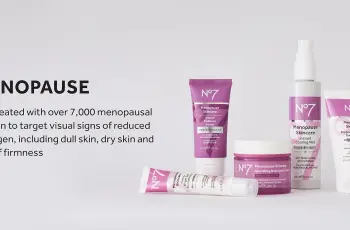
Is Canola Oil Safe for Skin? Dermatologist Reviews
Oils have slowly taken over our beauty routines. From our daily skin care to our after-shower body and hair treatments, oils can be found on the ingredient lists of moisturizers, cleansers, masks, conditioners, lotions, and creams. But when we talk about oils, especially those that serve dual purposes and have a place in our kitchens (like olive, avocado, and almond oils), we can’t help but wonder if they’re safe for the skin. The answer? Yes—mostly.
However, as we know, not all oils are created equal. So can the same be said for canola oil? In true Byrdie style, we went straight to the experts for the answer. We spoke to two board-certified dermatologists, Elaine F. Kung, MD, FAAD, and Jodi LoGerfo, DNP, APRN, FNP-BC, DCNP, to find out everything you need to know about this ingredient.
Read on to learn more about using canola oil on your skin.
Meet the Experts
Elaine F. Kung, MD, FAAD, is a clinical assistant professor at Weill Cornell Medical College and founder of Future Bright Dermatology.
Jodi LoGerfo, DNP, APRN, FNP-BC, DCNP, is a renowned dermatologist at Orentreich Medical Group, LLP.
What is Canola Oil?
Canola oil is a vegetable oil made from crushed rapeseed. “In some countries, the term canola oil refers to industrial oil, while rapeseed oil refers to cooking oil,” Kung told Byrdie. Due to its nourishing and moisturizing properties, canola oil is used in hair care, skin care, and cosmetics.
Compared to other oils, canola oil is relatively new to the market. Genetically modified rapeseed plants, also known as canola oil, were produced in Canada for cooking in 1979 and are the world’s third-largest source of vegetable oil and the second-largest source of protein powder, Kung said.
Canola Oil Benefits for Skin
“[Canola] oil has been scientifically proven to help the skin retain moisture by reducing transepidermal water loss because it is semi-occlusive,” explains Kung. “[Canola] oil has a 2:1 ratio of oleic acid to linoleic acid, which is almost similar to the ratio of healthy skin. In addition, canola oil is rich in proteins, phenolics, lipids, and vitamins such as vitamin E, which are scientifically proven to have antioxidant, anti-inflammatory, and anti-wrinkle properties.
In addition, LoGerfo says canola oil is beneficial for the skin because the oil is rich in essential fatty acids and is rich in vitamins K, C, E, and antioxidants. “Essential fatty acids can moisturize the skin and improve its firmness,” she explains. “Vitamins E and K may help with skin issues such as acne and skin aging, including fine lines and wrinkles. Vitamin E can also protect the skin from free radical damage. ” She also notes that the vitamin C in canola oil can help reduce skin pigmentation and blemishes.”
Potential Side Effects and Skin Type Considerations
Both experts agree that anyone with acne-prone skin should be careful when using products containing canola oil. “Canola oil has a comedogenicity level of 4,” explains Dr. Logfor. “Comedogenicity refers to the oil’s ability to unclog the body’s pores. While canola oil can theoretically be helpful for treating acne, it probably shouldn’t be used in people with acne because it can clog pores, which can make acne worse.”
How to Use Canola Oil for Skin Care
Now that you know canola oil can benefit your skin and hair, you may be wondering how to incorporate it into your daily routine. Since it can clog pores, you shouldn’t just pull a bottle out of your kitchen cupboard and apply it to your skin. Instead, opt for products that contain canola oil.
Conclusion
Canola oil (made from crushed rapeseed seeds) is a plant lipid that contains high levels of essential fatty acids, vitamins K, C, E, and antioxidants to moisturize the skin. Canola oil also has a semi-occlusive effect, which means it reduces transepidermal water loss and retains moisture in the skin. It is found in a variety of skin and hair care products, including moisturizers, creams, lotions, masks, conditioners, and sunscreens. People with acne-prone skin should avoid this ingredient because it can clog pores. It is also recommended not to use culinary-grade canola oil on the skin. If you experience irritation, rash, redness, or stubborn breakouts after using canola oil products, seek advice from a trusted dermatologist.


